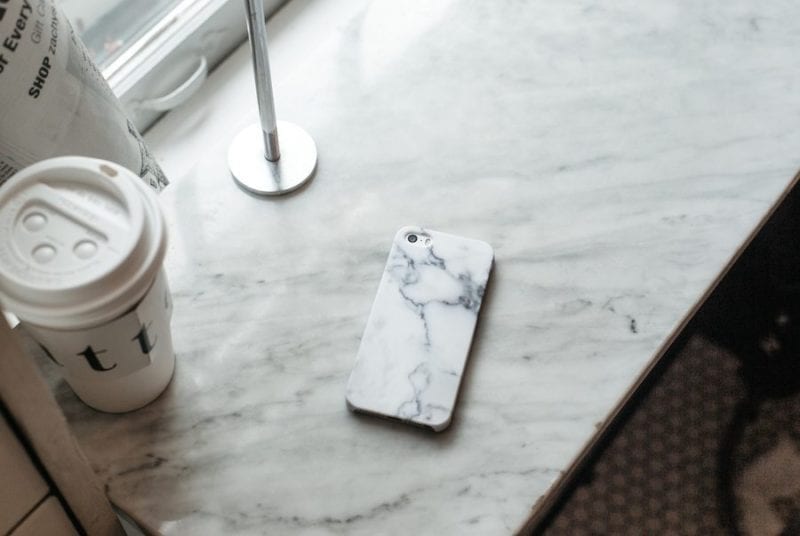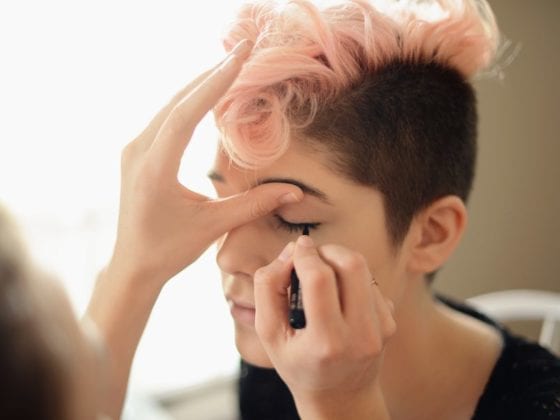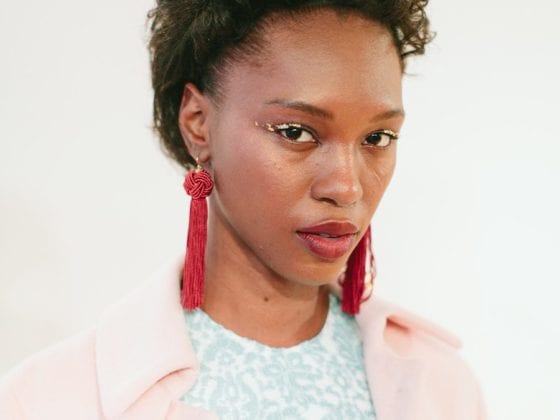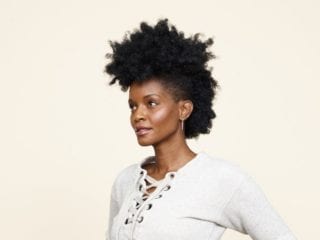With glossy magazines stocked at every supermarket checkout, the emergence of the digital supermodel (Gigi and Kendall), and trending hashtags like #fitspo devoted solely to fitness inspiration, it’s no surprise that women feel pressured to achieve what is portrayed as an ‘ideal’ body weight.
Prior to the days of social media, women were less likely to be constantly visually reminded of what society portrays as physically appealing. Today, unless you only follow your aunt Lucy and the account you made for your dog, your social media handles are likely bombarded with perfected selfies, inspirational hashtags and re-grams of perceived ideals.
Thanks to hashtags, not only are you seeing similar content from your own following, but you are now linked to related posts from around the world! Queue the feelings of being overwhelmed, pressured and dissatisfied with yourself.
The days of Tumblr and endless scrolling of #thinspiration (frail models and celebrities whom likely suffer from a serious psychiatric illness) have evolved to a more socially acceptable social media trend of #fitspo. Although attaining a fit and healthy lifestyle is encouraged, having unrealistic and unattainable ideals (a six-pack with minimal body fat) can be dangerous. We are all unique with a different genetic makeup, metabolism and body shape, and what is considered ‘ideal’ for one may not be possible for another.
Being healthy includes being active, eating well, and maintaining mental wellbeing by creating a realistic balance. When scrolling through #fitspo images, we see snippets of lives that are carefully filtered and curated, but that doesn’t give us the full story. We aren’t told about whether there was a personal struggle behind a set of sculpted calves, self-doubt behind a flat stomach, or endless comparison behind a toned back. We look at these images as ideals and we strive to look the same. The danger with this approach is that these ideals are often not realistic or attainable, and can result in feeling discouraged, deflated and even unmotivated.
We aren’t told about whether there was a personal struggle behind a set of sculpted calves, self-doubt behind a flat stomach, or endless comparison behind a toned back.
Beyond not feeling encouraged to engage in your own healthy living routine, such comparisons can also precipitate or perpetuate low self-esteem, low mood and disordered eating. Although the intention of #fitspo was likely developed with the intent to provide inspiration for healthy living, I can’t help but think that it has evolved to become the contrary.
Together we can make a change and re-define our own ‘ideals.’ Next time you feel the urge to regram your favorite insta-famous fitness guru, instead consider posting a picture of your new tennis shoes, those pink boxing gloves at the local gym or an inspirational quote from your latest SoulCycle class. Let’s encourage change, motivation and self-acceptance instead of comparison and competition.
What do you think? Is #fitspo just another way to pursue perfection?
Image via Abby Louna












8 comments
It usually comes down to “does this serve people?” Do these images and symbols inspire people to live in a way that feels joyful or anxious? True to ourselves or shutting parts of ourselves down to fit some kind of ideal?
As someone who had an eating disorder as a teen and young adult I found the beauty ideal of a very slender, “hard” body to be be an impetus for self-rejection. I used diets and exercise as a way to negate myself.
It’s taken years to move past my body obsession. And from time to time I still find myself getting upset about my weight and not being able to fit into my “skinny” jeans.
I’m against unrealistic images so much as I am FOR seeing a variety of images. Images of women who are many different sizes and shapes as representations of what is desirable. We are not slaves to images in the media. We can all adopt our own ideals for what we aspire to.
If you don’t like what the media is showing you, create your own images of what beauty, health, and happiness mean to you. Change begins within. We may not be able to change what shows up on mainstream media overnight but we can choose not to let it influence how we feel about ourselves. The media won’t keep showing these images if we stop buying them as truth.
I agree, it is hard to avoid the comparisons. “Fit is the new skinny” mentality is great in theory but definitely can be manipulated to be just another way we don’t live up. I feel this immensely in the insta/online yoga world of which I am a part. I love that asana and the practice have become embraced by fitness, but it definitely can make you feel unworthy and self-conscious scrolling through images of thin, uber sculpted people doing arm balances and handstands. Comparison is block in every aspect of life, it just seems even more painful and pointed when, as women, it’s at our bodies.
It’s hard to protect anything when it’s given over to something as free-form and ever-changing as the internet, including a hashtag. No matter how good the intentions were in creating it, there will be those who want to turn it into something for themselves with little regard for what it may cost others. Nothing is really safe, there are too many minds and differing intentions sharing the same space. If we understand that social media is a tool that can be used and abused, it is easier for us to identify the abuses and accept the inspiration from those who use #fitspo (or any other hashtag) as a way to encourage others. If you find yourself being pressured negatively by the things you see on social media, perhaps that is a warning to step away from instagram, facebook, etc. It begins with a healthy perspective on social media in general.
I think this is a great conversation! When I read the article, my take home message was simple: Don’t compare yourself to Instagram Photos. I don’t think the author was saying that every fit woman has an eating disorder or has unhealthy behaviour. I think far from it. I think the author was encouraging us to be conscious about comparing ourselves to others. I think the way she delivered the message was great and relevant for today’s society. #fitspo is a thing and we have to be cogniscent of what we compare ourselves to. Every woman has their own journey to health.
Yours is a very valid point! I strongly agree with you, especially on the inevitable ‘comparison’ that goes on in our minds. On the same subject I wrote this article, my idea is that all the #fitspo related posts make it seem inacceptable to be comfortable in your own skin, unless you look like them.
Which, let’s be honest, it’s a ridiculous assumption! IG makes that consistent/genetically gifted 2% of population more visible than the rest of us.
Read here: http://300daysofengland.blogspot.com.au/2016/02/why-my-self-is-not-your-best-self.html
Thank you for your comment Melissa. The purpose of this article was to start a conversation about such an important topic and I am happy it has done just that.
I agree, women have been facing issues with body image long before social media. However, in my opinion, such issues have been exacerbated as the culture of self-comparison through social media has evolved. As stated above, I think the intentions for starting #fitspo was to provide inspiration for healthy living but for some (not for everyone, of course) it has evolved to be the contrary.
You ask why is pursing perfection have to be cast in a negative light? What is wrong with aiming high? I think we should all strive for our own personal best but perfection should not be the end goal….as it is unachievable due to the fact it remains unmeasurable.This article did not imply that there is a back story of pain behind all photos, it is just addressing the point that we don’t know if there is and therefore what we see as a single image (someones else’s body) should not be taken at face value. Of course not all fitness gurus have mental illness (although statistically 1 in 5 individuals do live with mental illness) but those whom may be searching for such images may and photos of what is perceived as ‘ideal’ or fit may not only be unattainable but they may also be triggering.
Additionally, anything (even healthy eating and fitness) in excess is not healthy. In fact, excessive exercise is one of the compensatory behaviours listed in the diagnostic criteria for eating disorders. This is not implying all fit women engage in such behaviours or have mental illness, not at all, it is just implying we should be conscious and mindful that others may be.
Thank you Melissa, it is conversations like this that sparks meaningful discussions.
Why does pursuing perfection have to be cast in a negative light? What’s wrong with aiming high? Why is the author assuming that people with fit bodies are dealing with psychiatric issues or comparison woes. Why does having high fitness goals have to equate with a disorder.
Women have been facing unrealistic body image issues since long before social media. Personally, I’m thankful to finally see strong women instead of just skinny women. Following the very hashtag that was in Darling’s Insta post, the top posts contained only one ab-selfie (a before/after shot of someone who had obviously worked hard for their body) and actually had several videos of men and women lifting weights and performing athletic feats. I don’t see the harm in this.
Its been my pursuit of fitness that has helped me eat healthier and feel stronger than ever before. And it’s been following fitness gurus and the stories of many #fitspo women on Insta that has changed the way I feel about my body. I don’t have abs, and while I aspire to, the journey to get them has been one of perseverance, health, patience, and love of the body that I’m WORKING for. It’s much easier to love a body (imperfect or not) that I’m working at than chalk my imperfections up to an unfairness that my body is different than others.
Everything on social media is filtered and cleaned up. Anyone who holds themselves to a crafted image of perfection on social media needs to do a reality check- that’s not just for fitness. But that also doesn’t mean that every set of abs or photo of sculpted calves has a back story of pain. I would contend that many of these photos were posted with pride and hard work behind them, and that most of the photos yielded followers that were inspired, not discouraged.
I have followed a lot of transformation stories of women who have gone from hating their bodies to loving them because of fitness. There will always be a contingency of people who take it too far and end up with a disorder, but I think that blaming a hashtag that is trying to promote strength and fitness is a bit far-fetched. We are all motivated and deterred by different things, and for me, seeing the story of a woman who turned her life around by challenging her body, abs-and-all, is inspiring.
It’s often the posting of someone’s #wcw that introduces me to the next guru that inspires the next level of commitment and challenge in my journey. It’s not a picture of my pal’s running shoes or pink boxing gloves.
Perhaps Darling should consider an interview with one of these fitness gurus that embodies the mantra of the magazine because I think that discipline, strength and health are “beauty without vanity.” I just don’t think that the intellectual women that Darling targets need to promote the idea of strong women being mentally unhealthy behind their sculpted bodies.
First: I see and appreciate the heart of this article. I think it’s an important issue; I just think it’s a deeper issue to deal with than a hashtag and some pictures.
I agree with Melissa. While I think it’s important to consider the harmful effects, a lot of the fitness accounts that I follow have played a big role in motivating me to live a healthier lifestyle—not to lose weight or attain a perfect physique (although the physical benefits are a nice bonus!). I know this isn’t true for all of them, but the majority of the “fitness gurus” I follow place a TON of emphasis on progress > perfection, and a healthy lifestyle over weight loss.
There will always be a way to misuse or be discouraged by positive things. It’s absolutely important to acknowledge and address that, because I know it’s very real. But at the same time, it’s not fair to say, “Hey, I know you’ve worked REALLY hard and are proud of what you’ve overcome and accomplished, but you can’t post a picture of yourself because it might make someone feel bad.” There’s nothing wrong with celebrating the results of a lot of hard work and discipline.